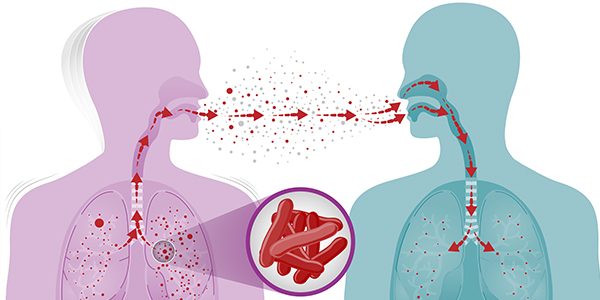New Delhi: Several cases of tuberculosis (TB) in India are still underreported after so many years. Despite the fact that the government and various NGOs have launched a number of programmes to promote awareness about tuberculosis, many individuals are still unaware of the disease and its symptoms. Many TB patients in India, particularly those from the lower middle class, still experience social shame from their families and peers. Family members actively encourage isolation, and relatives shun them at family events.
Aamir (name changed) from Thane, was diagnosed with TB in 2019. He told The Sunday Guardian, “I avoided my friends and family after being diagnosed with tuberculosis. Many of my close friends used to tease and shun me, telling me that I was going to die. I sent my wife and children to Pune so that they don’t face any trouble because of me. I still live alone and have my own set of utensils. Because other family members were living in the house at the time of the Covid-19 outbreak, I created a separate place for myself.”
If a healthy diet and medications are followed, tuberculosis can be cured. Unfortunately, Aamir lost half of his vision as a result of the side effects of heavy drug doses. He continued to take his medication, though and began a new life. “At the moment, I’m still on medication, and I’ll have to keep taking it until January 1st.” I used to take 15 medicines a day, but now I just take five,” he said cheerfully.
Similarly, another TB sufferer, Asha, from Thane, Maharashtra, told this correspondent, “I did have the symptoms of TB but it was diagnosed in October this year. My treatment started in November. The doctor gave me some medicine and examined for 10-11 days whether I was having any side effects of medication. Since I showed no side effects, the doctor has asked me to continue the medicines.”
Further, she added, “Because I don’t have many friends or relatives, the majority of my relatives are unaware of my illness. Some of my close friends are aware of it, but they have not ostracised me. Some family members believe it was all my fault and that I should have taken responsibility for my well-being and taken care of myself.” Unfortunately, due to financial strains, she couldn’t afford to buy medicines.
Most of the underprivileged TB patients, for instance, tribal people, migrant workers cannot avail healthy nutritious food due to a lack of income. Sunny from Aarna Foundation, Maharashtra, told this correspondent, “Even the migrant workers have to look after their families, so they can’t purchase healthy foods like pulses, protein and so forth. Also, they need an adequate amount of rest,”
He continued, “Furthermore if any members of their family get infected, they are unable to find a separate area for the infected patient. They all reside in the same house, but due to a lack of awareness and the unavailability of a separate space, they are unable to maintain sanitation or a hygienic environment. The government has taken appropriate steps to tackle the disease, but a big issue in India is the lack of adequate meals for underprivileged tuberculosis sufferers. Many patients develop side effects from high-dose medications, such as hearing loss or vision loss, as well as kidney damage. Many patients are required to take medications for extended periods due to a lack of a nutritious diet, resulting in a variety of serious consequences. Many cases of tuberculosis (TB) go unreported in India because many underprivileged people, unaware of the disease, visit local pharmacies for medications to treat typical cold and fever symptoms. They have no notion how dangerous the condition is since they are unaware of its severity. “In many cases, patients receive medication from either government or private facilities. The majority of patients do not take their medications on time and have their own drug intake habits. Many individuals have drug side effects and alter their dosage due to several adverse reactions. Also, many patients do not finish the course of medicine,” Dr Manoj Singh, consultant, chest and critical care, Apollo Hospital, Ahmedabad, told this paper.
Patients with tuberculosis face social stigma
- Advertisement -

